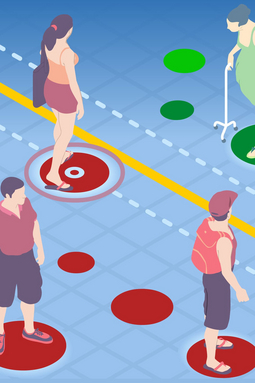SCI-PHI
Segment-based Collective Intelligence for Population Health Improvement

Can positive deviance and data-driven segmentation help patients with poor diabetes control learn from those ‘like them’ who are successfully managing their disease?
The project uses clinical data and machine learning algorithms to segment patients with Type 2 Diabetes based on behaviours and therapeutic preferences. Patients from specific segments and from across segments are involved into tailored peer-to-peer workshops to test whether patients with poor disease control can learn from those who are successfully managing their disease in the same segment and become ready for behaviour change. The experiment will generate new insights into how to disseminate “good” condition management behaviour throughout patient populations. It will help us understand how segmenting patients by their behaviour rather than by their condition can improve the spread of positive behaviour. This will be relevant for medical professionals, technologists in the space of digital health, or policy makers.
PARTNERS & CNR-IEIIT ROLE
Partners: CNR-IEIIT (coordinator), Queen’s University (Kingston, Canada), Ryerson University (Toronto, Canada)
IEIIT coordinates the project and the experimental protocol and performs data analytics CNR (CNR IEIIT coordinator and CNR IASI), Università di Roma “Roma Tre” - Department of Science, Università di Roma “Tor Vergata” - Department of Clinical Sciences and Translational Medicine
OTHER INFORMATION
Funding: Nesta (UK)
Timeline: 25 Mar 2020 – 31 May 2021
